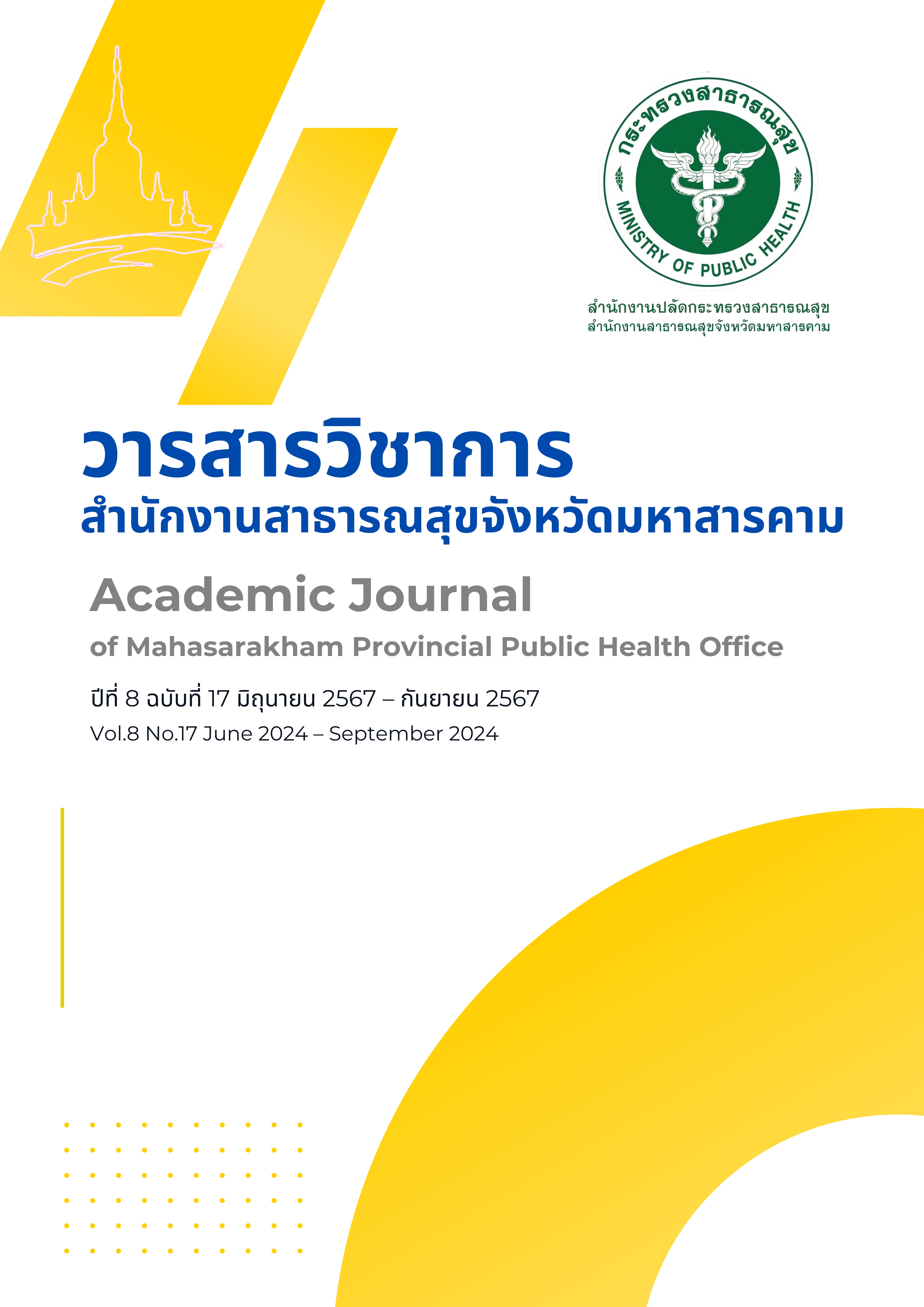Evaluation of the Development of Antimicrobial Resistance (AMR) Management and the Autostop Antibiotic System at Borabue Hospital
Abstract
Abstract
Antimicrobial Resistance (AMR) has become a significant global issue, impacting hospitals worldwide that have led to increased mortality. Borabue Hospital has developed a system for managing antimicrobial resistance (AMR) and the Autostop Antibiotic. This study was conducted using a retrospective cohort study, collecting data from the hospital between January 2021 to December 2022. The study compared patient data with self-assessment scores, incidence of Antimicrobial Resistance, proportion of antimicrobial resistant infections and amount of injection antibiotics used. It was found that the implementation of the AMR management system in intermediate stage in 2022. AMR management program and the Autostop Antibiotic System were associated with decreasing incidence of antimicrobial resistance from 13.89% to 8.78% (P = 0.043). The number of patients with bloodstream infections caused by 8 different species significantly decreased from 49.86 to 40.00 (P = 0.012). Additionally, there was a significant reduction in the use of injectable antibiotics for inpatients (measured in DDD per 100 patient-days), including gentamicin, streptomycin, piperacillin/tazobactam, clindamycin, ampicillin, metronidazole, and ceftazidime (P = 0.005, 0.020, 0.039, 0.010, 0.009, 0.013 and 0.014). The Incidence of Antimicrobial Resistance in the bloodstream was slightly decreased with no statistical significance.
Keywords : Antimicrobrial resistance (AMR) management program, Antimicrobial resistance, Antibiotic


